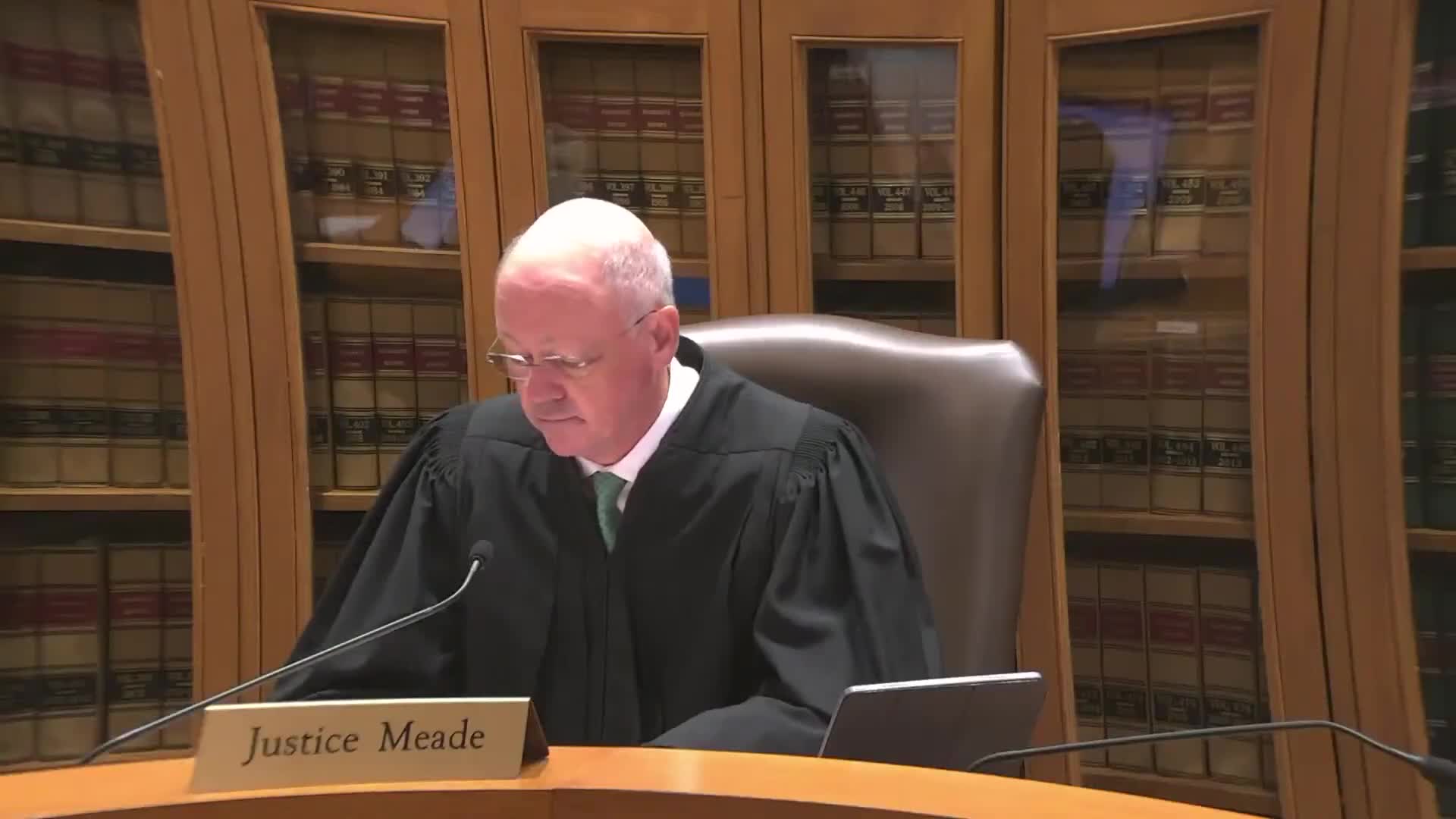Appeals court considers whether possession, gloves and coconspirator statements support receiving-stolen-vehicle conviction in Santana
Get AI-powered insights, summaries, and transcripts
Subscribe
Summary
In Commonwealth v. Santana (24P599), defense counsel said possession of a stolen truck while wearing gloves and equivocal statements after arrest do not prove knowing receipt; prosecutors said the defendant's role in a larger criminal operation, the gloves, and in-van statements support conviction
The Appeals Court panel of Justices William Mead, Niman and Walsh heard argument in Commonwealth v. Santana (24P599) on whether the evidence presented at trial was sufficient to support a conviction for receiving a stolen motor vehicle and whether certain post-incident statements were admissible as coconspirator statements or improperly admitted narrative.
Defense counsel Dana Goldblatt argued the government’s proof was insufficient and invoked Commonwealth v. Hunt, saying possession of a stolen vehicle alone does not establish knowledge beyond a reasonable doubt. Goldblatt described the case as a "prototypical" instance where someone was found driving a vehicle later described as stolen and where many of the factors the court previously found decisive in Hunt were absent. She emphasized the ambiguity of a post-arrest audio statement and told the panel that the defendant "did not admit to knowing the vehicle was stolen before being told he was driving a stolen car," and that the audio was unclear and not dispositive of prior knowledge.
Goldblatt also contested the prosecution's emphasis on the defendant's neoprene/rubber gloves. She argued the gloves could relate to handling firearms or other evidence and that wearing gloves while operating a vehicle does not itself establish knowledge that the vehicle was stolen. Goldblatt pressed the court to distinguish between inferences the jury may draw and what the record actually proves on the sufficiency standard.
Prosecutors, including Hallie White Spate of the Middlesex District Attorney's Office, said the record supports reasonable inferences of knowledge and joint participation. White Spate described evidence that the defendant was part of an expedition to locate cars and weapons, helped move a stolen white van, and wore a mask and gloves while involved in the operation. She argued the defendant's conduct and the group's pattern—use of stolen vehicles, possession and movement of firearms, and statements made while exiting the scene and during the return trip—could permissibly be considered by a jury to show knowledge and participation. On the admissibility dispute, the Commonwealth urged the court to treat statements made to co-participants as statements in furtherance of a conspiracy rather than later narrative to a nonconspirator.
The panel asked questions about whether a statement made after the defendant had been arrested and after others told him he was driving a stolen car could be used to infer prior knowledge, and whether the contested remarks were part of an ongoing joint venture or amounted to after-the-fact narrative to a nonconspirator. Counsel and the court also discussed the applicable standards of appellate review (abuse of discretion for evidentiary rulings; sufficiency review for the receiving-stolen-vehicle charge).
The court did not issue an opinion at argument; the panel took the matter under advisement.
